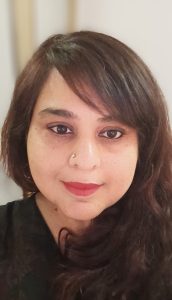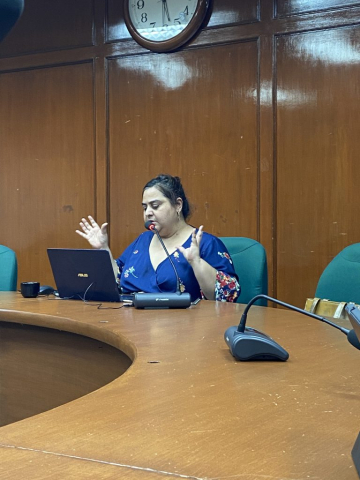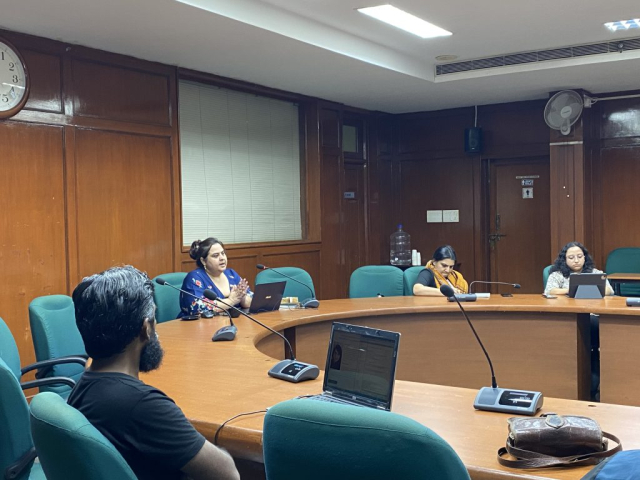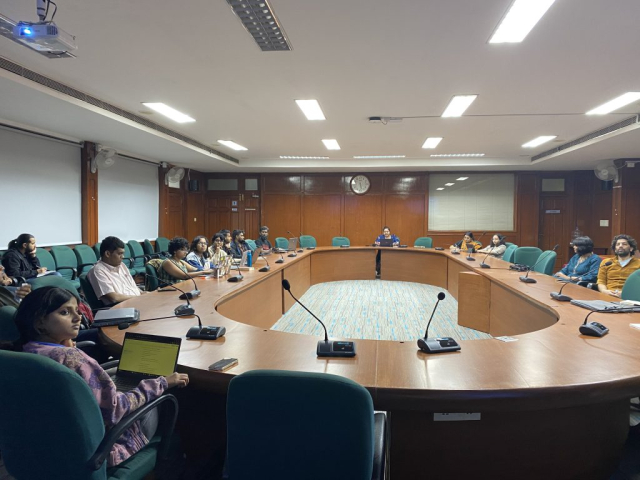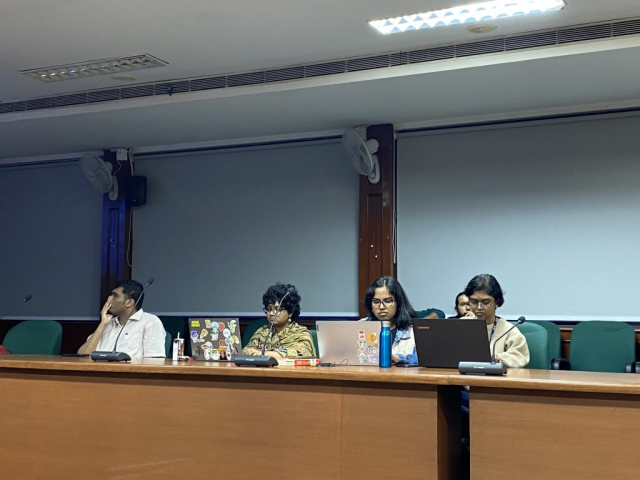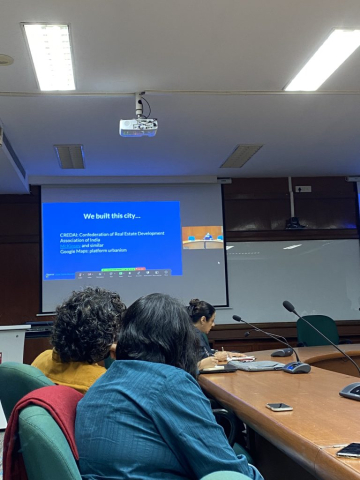The Centre for Labour Studies (CLS) at NLSIU is organizing a day-long seminar at its campus, as well as online, on November 16, 2024. The event will feature panel discussions exploring various aspects of gig and platform work, with the aim of collaboratively developing recommendations for stronger labour protections.
The seminar will also be streamed online. You can watch the seminar via this Zoom link.
Zoom Meeting ID: 970 9289 4199
Zoom Passcode: 861007
Concept Note
In July of 2024, the Karnataka Government released to the public for comments ‘The Karnataka Platform Based Gig Workers (Social Security and Welfare) Bill,’ a draft legislation intended to regulate working conditions of gig and platform workers across the state. With the introduction of this bill, Karnataka became the third state in the country after Rajasthan and Jharkhand to legislate on matters concerning gig and platform workers rights. Since then, states including Kerala and Telangana, have expressed their intention to introduce comparable laws. Additionally, the central government has recently appointed a committee to explore extending social security and welfare benefits for gig and platform workers nationwide.
This surge in legislative efforts is significant, especially as gig and platform work becomes a dominant source of livelihood for many in India’s workforce. As per a 2022 Niti Aayog report, gig and platform workers are likely to expand to over 23.5 million by 2029-30. While platform work has emerged as a dominant alternative to traditional work, it is also plagued by precarious working conditions including in relation to pay, hours of work, freedom of association and new challenges such as algorithmic and AI-related discrimination engendered by specific nature of platform work.
In this context, recent government efforts to regulate this sector are a welcome development. However, there has been limited in-depth analysis of the scope, content, or practical benefits of these different legal frameworks for workers. Furthermore, public discussions on what constitutes ideal worker protections for gig and platform workers in India — especially in comparison to evolving international standards and recent developments in Europe — have been lacking.
To address these gaps, the Center for Labour Studies (CLS) at NLSIU is organizing a seminar from 10 AM to 5:45 PM at its campus. The event will feature panel discussions exploring various aspects of gig and platform work, with the aim of collaboratively developing recommendations for stronger labour protections. With many of the proposed laws still in draft form, CLS hopes that the insights and recommendations from the seminar will prove beneficial for gig and platform workers, their unions, and civil society organizations advocating for stronger and more effective worker protections in their states and with the central government.
Related Publications
Schedule
| Timings |
Panel |
| 10:00 AM to 10:15AM |
Welcome and Introduction to seminar
Saurabh Bhattacharjee, Center for Labour Studies, NLSIU |
| 10:15 AM to 11:30AM |
Panel 1: Situating Working Conditions of Platform Workers
Despite narratives of flexibility and high pay, platform work has come to be increasingly characterized by precarious and uncertain conditions. In 2021, the International Labour Organization (ILO) reported that platform workers in India earn 60-80% less than those in traditional labour markets. More recent studies have revealed alarming working conditions, including perilously long working hours, physical and mental health issues and workplace violence. This panel will feature insights from recently released reports offering in-depth analyses of the labour conditions faced by gig and platform workers across the country.
Panelists:
1. Balaji Parthasarthy, Fairwork India
2. Vinay Sarthy, Karnataka United Food Delivery Partners Union
Moderator:
Madhulika, Center for Labour Studies, NLSIU |
| 11:30 AM to 11:45 AM |
Tea/Coffee Break |
| 11:45 AM to 1:00 PM |
Panel 2: Misclassification and Definitional Challenges
The central issue at the heart of regulating platform work globally has been the question of whether individuals engaged in gig and platform work can be legally recognised as workers.
This panel will delve into global jurisprudence on this topic, including the recently enacted EU Platform Work Directive and various court rulings from the United Kingdom and other jurisdictions. Additionally, the panel will examine how the legal definition of a “worker” has been interpreted in the Indian context and will explore various legal approaches and tests to tackle the complex challenge of defining “worker” status for those engaged in platform-based work in India.
Panelists:
1. Gayatri Singh, Senior Advocate, Bombay High Court
2. Saurabh Bhattacharjee, Center for Labour Studies, NLSIU
Moderator:
Madhulika, Center for Labour Studies, NLSIU |
| 1:00 PM to 2:00 PM |
Lunch |
| 02:00 PM to 3:15 PM |
Panel 3: Earnings and Social Security
Across India, recent legislative efforts — from the 2023 Rajasthan Act to upcoming bills in Karnataka and Jharkhand — are focused on extending social security to gig and platform workers. Complementing these state initiatives, the central government’s Code on Social Security also aims to bolster protections for this workforce.
This panel will explore the scope and impact of these social security measures, evaluating their adequacy, identifying potential gaps, and discussing the future of just social security protections for workers in India’s evolving platform economy.
Panelists:
1. Professor Mohan Mani, Center for Labour Studies, NLSIU
2. Roopa Madhav, Vidyashilp University
Moderator:
Sathyanand Mukund, All India Trade Union Congress (AITUC) |
| 3:15 PM to 4:30 PM |
Panel 4: Freedom Of Association and Collective Bargaining
The atomised nature of platform work poses significant barriers to building collective power, often hindering unionisation efforts. Gig and platform workers, classified as self-employed, frequently face legal obstacles to organizing and engaging in collective bargaining.
This panel will examine these challenges and explore innovative regulatory frameworks that promote freedom of association and support the growth of worker power in the gig and platform economy.
Panelists:
1. Professor Babu Mathew, Center for Labour Studies, NLSIU
2. Clifton D’Rozario, All India Central Council of Trade Unions
Moderator:
KV Bhat, All India United Trade Union Centre (AIUTUC) |
| 4:30 PM to 5:45 PM |
Panel 5: Algorithm and Conditions of Work
Contrary to the myth of “being your own boss,” platform workers face intense surveillance and workplace monitoring through opaque algorithmic management systems that control their pay, work hours, and overall working conditions. These systems introduce new forms of discrimination, extensive data capture, and uncertainty, tightening corporate control over workers’ lives.
This panel will examine how the algorithmic black box impacts workers and explore ways they can fight back to retain control over their lives in the workplace.
Panelists:
1. Nandini Chami, IT for Change
2. Devyani Pande, NLSIU
3. Elisa Pannini, University of Greenwich
Moderator:
Vijetha Ravi, Center for Labour Studies, NLSIU |
About Centre for Labour Studies, NLSIU
Centre for Labour Studies (CLS) is an autonomous Centre within the National Law School of India University (NLSIU). It has been set up as a multidisciplinary Centre to be able to address various issues that define regulation and governance in employment relations. It seeks to primarily engage with five issues: labour law and regulation; trade unions and collective bargaining; labour law governance, with focus on the Karnataka Labour Department; understanding employment relations and structure of industry in select sectors of informal and formal employment; precarious work and forced labour.
About Rosa Luxemburg Stiftung
The Rosa Luxemburg Stiftung (RLS) is a German-based foundation working in South Asia and other parts of the world on the subjects of critical social analysis and civic education. It promotes a sovereign, socialist, secular, and democratic social order, and aims to present members of society and decision-makers with alternative approaches to such an order. Research organisations, groups working for social emancipation, and social activists are supported in their initiatives to develop models that have the potential to deliver social and economic justice.
This seminar is sponsored by the Rosa Luxemburg Foundation e.V. with funds of the Federal Ministry for Economic Cooperation and Development of the Federal Republic of Germany.
Featured in the press
Deccan Herald | Lawyers, activists and scholars moot equal pay for equal work for gig workers

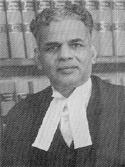 The National Law School of India University (NLSIU) is organising the Justice E.S. Venkataramiah Centennial Memorial Lecture on Sunday, December 22, 2024. The lecture on the topic ‘Reimagining Constitutional Institutions: Integrity, Efficiency, and Accountability’ shall be delivered by
The National Law School of India University (NLSIU) is organising the Justice E.S. Venkataramiah Centennial Memorial Lecture on Sunday, December 22, 2024. The lecture on the topic ‘Reimagining Constitutional Institutions: Integrity, Efficiency, and Accountability’ shall be delivered by 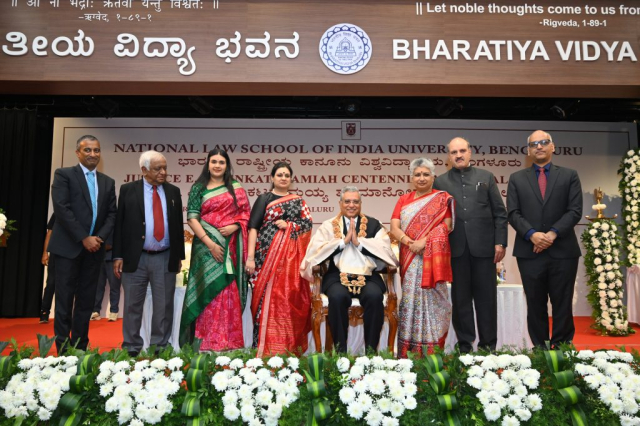
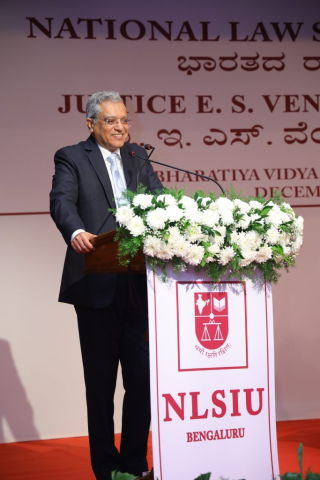
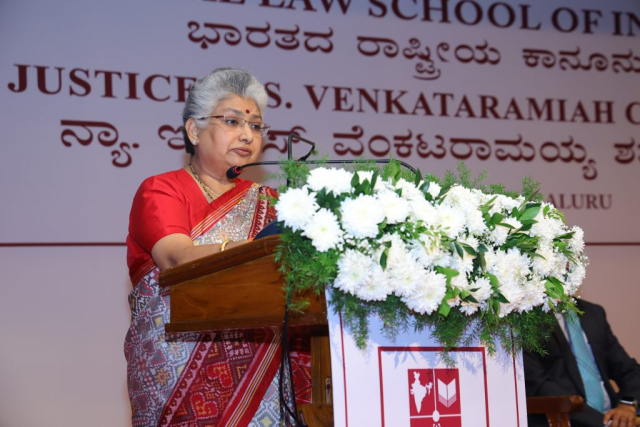
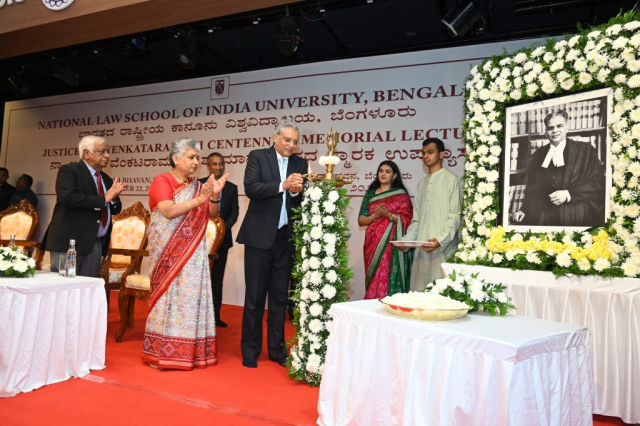
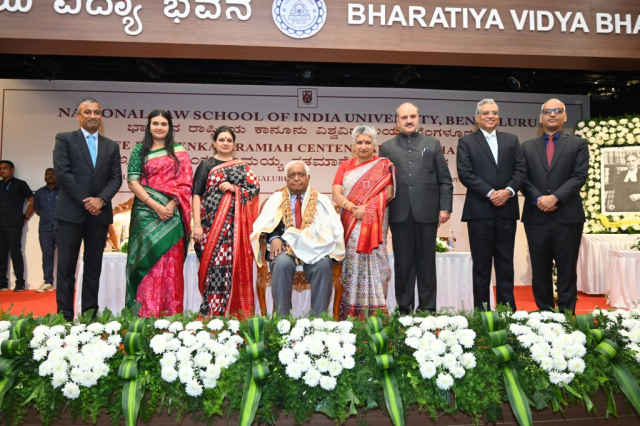
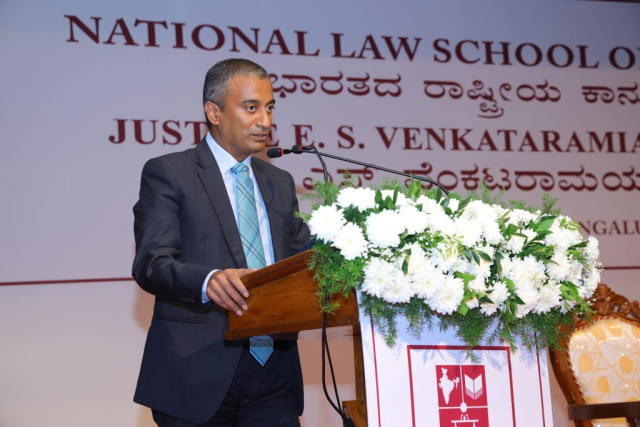
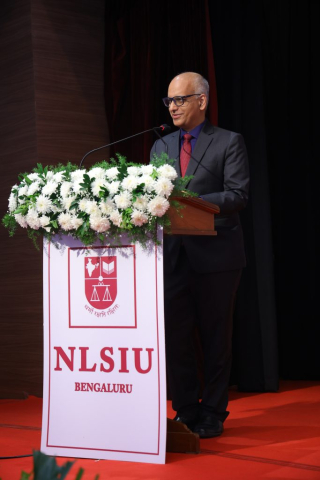
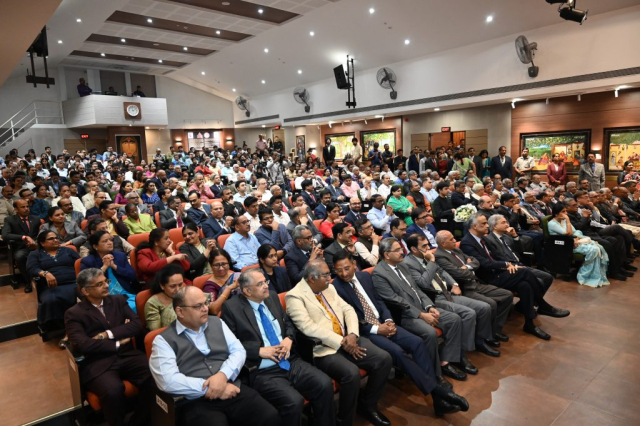
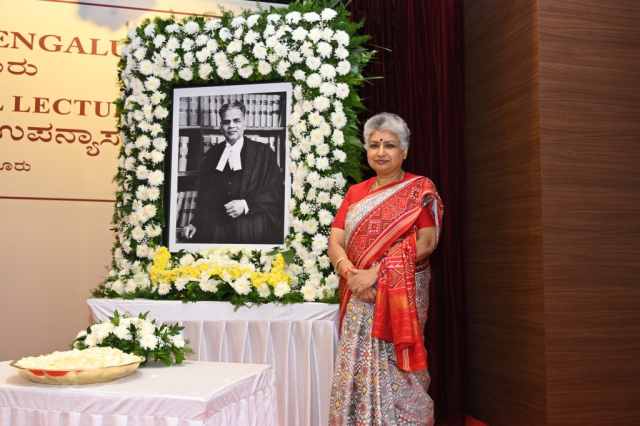
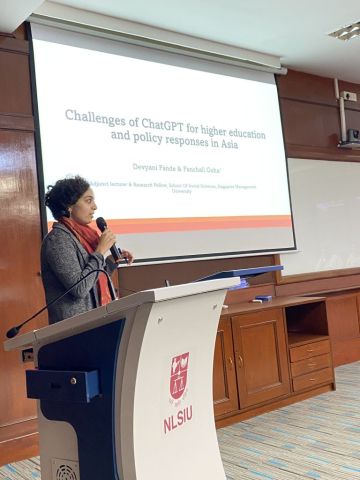
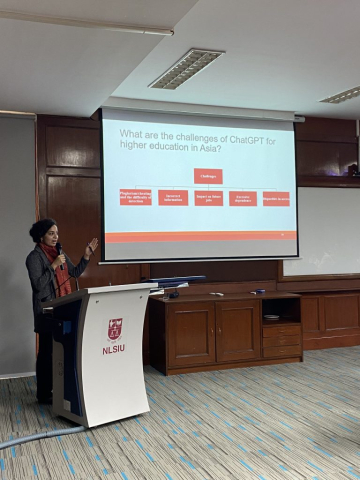
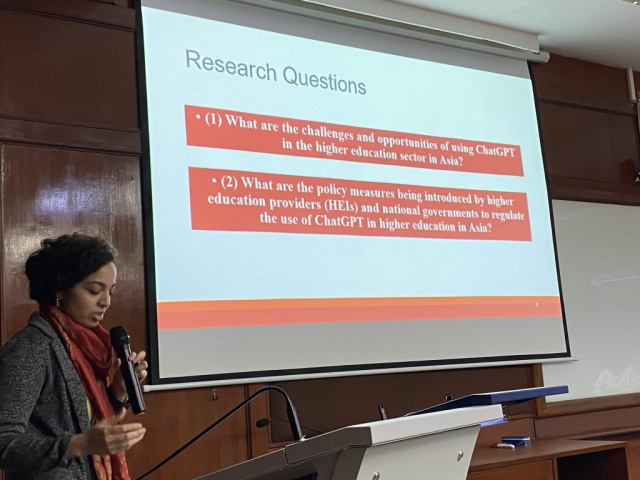
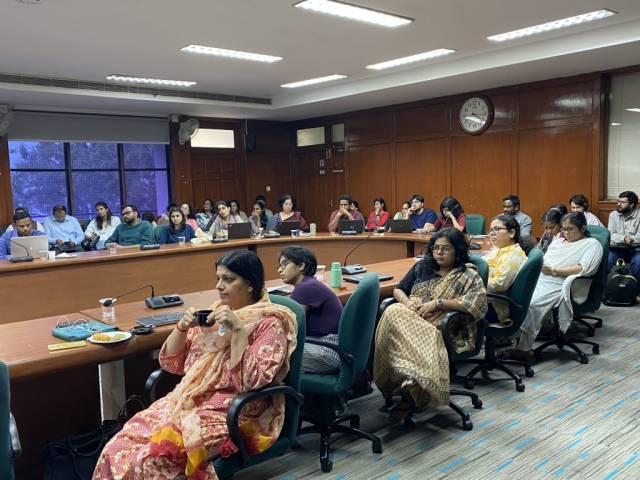
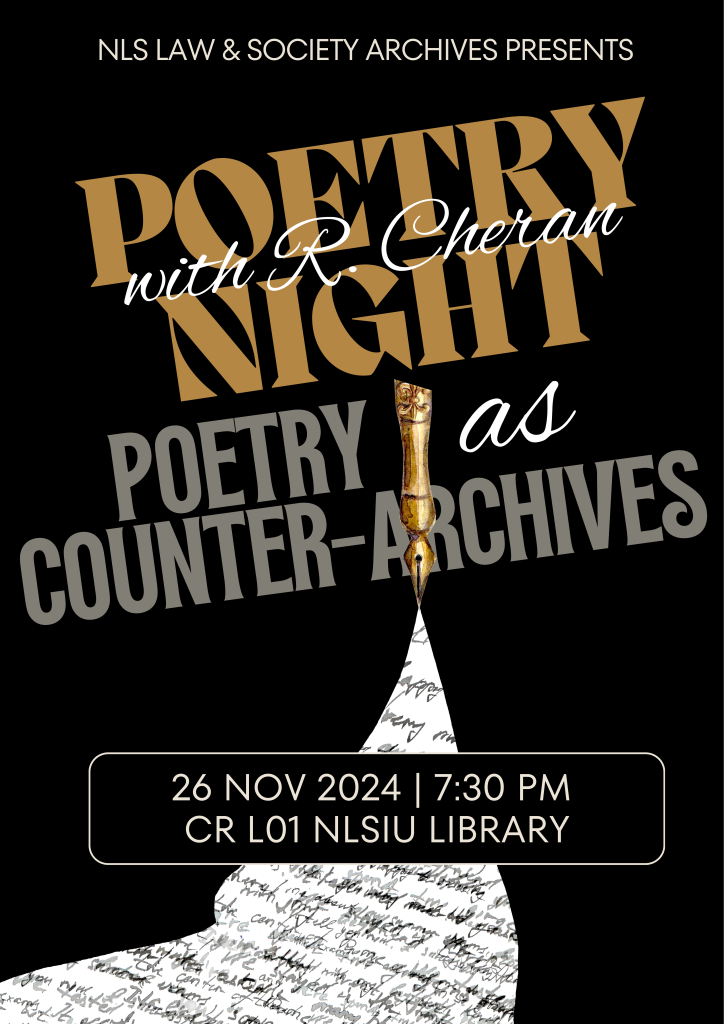 The NLS Law and Society Archives is organising an intimate poetry reading event with R. Cheran on ‘Poetry as Counter-Archives.’
The NLS Law and Society Archives is organising an intimate poetry reading event with R. Cheran on ‘Poetry as Counter-Archives.’ An exhibition titled ‘Expressions of the (un)tamed’ is being organised from Nov 14 to Dec 1, 2024 by the India Foundation for the Arts in partnership with Enfold and Beneathatree. The exhibition draws on material from the NLSIU-QAMRA archival project, and can be viewed at Beneathatree, Koramangala.
An exhibition titled ‘Expressions of the (un)tamed’ is being organised from Nov 14 to Dec 1, 2024 by the India Foundation for the Arts in partnership with Enfold and Beneathatree. The exhibition draws on material from the NLSIU-QAMRA archival project, and can be viewed at Beneathatree, Koramangala.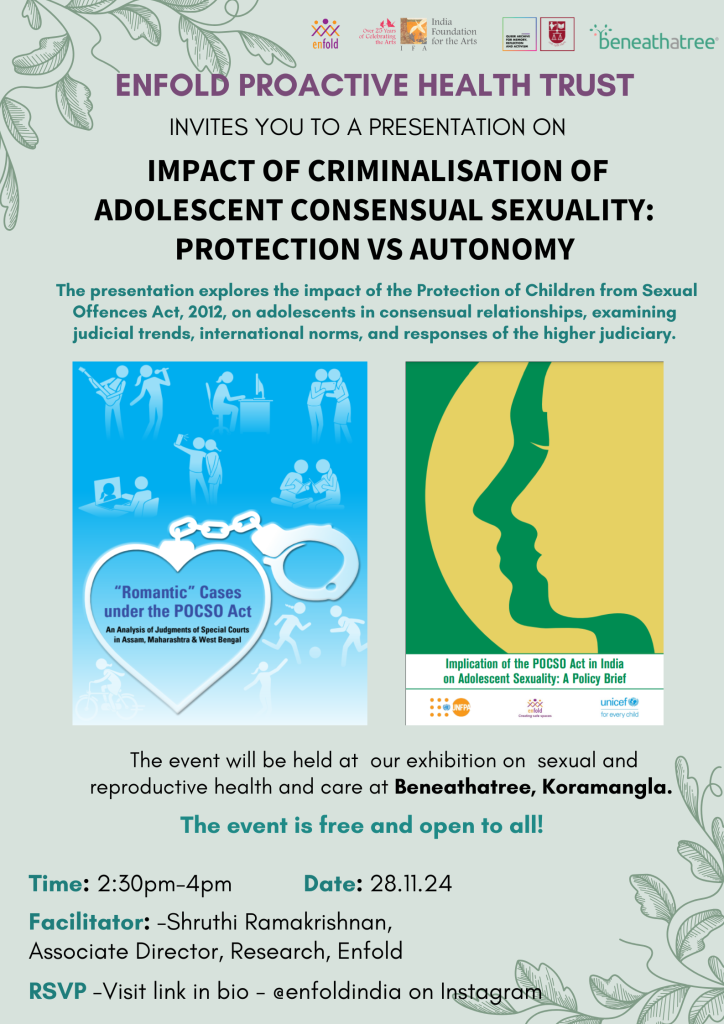 Impact of Criminalisation of Adolescent Consensual Sexuality: Protection vs Autonomy
Impact of Criminalisation of Adolescent Consensual Sexuality: Protection vs Autonomy